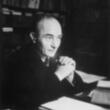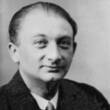The piano teacher
(Book)
F JELIN
1 available
Copies
| Location | Call Number | Status |
|---|---|---|
| Central - Adult Fiction | F JELIN | Available |
Description
More Details
Notes
Similar Titles From NoveList
Similar Authors From NoveList
Published Reviews
Booklist Review
Jelinek, the winner of the 1986 Heinrich Boll Prize, is introduced to American readers with an impressive novel that searingly re-creates a woman's despair and erotic fantasies. Erika is an unmarried music instructor in Vienna-- what a case she would have made for Freudian analysis-- who is totally devoted to her work and to whom her mother in turn is obsessively attached. But beneath Erika's quiet exterior boils a sexual passion that verges on the perverse. A young male student seems about ready to bring these fantasies to reality, but even he is eventually dismayed and repelled when he confronts Erika's real personality. While this story almost becomes a postfeminist, postmodern tempestuous romance, Jelinek skillfully uses both psychological description and social observations to portray her character and the world in which she lives. JB.
Publisher's Weekly Review
Sexuality and violence are coupled in this brilliant, uncompromising book set in modern-day Vienna, by the winner of the 1986 Heinrich Boll Prize. Erika Kohut, a spinster in her mid-30s, has been selected by her domineering mother to be sacrificed on the altar of art. Carefully groomed and trained, she's unfortunately not gifted enough to become a concert pianist. Instead, she teaches piano at the Vienna Conservatory. She still lives at home, and in the eyes of the world is the dutiful daughter. But there's another, perversely sexual side of Erika that she finds difficult to repress. She goes to a peep show, frequents the local park where Turks and Serbo-Croats pick up women and, just for kicks, slices herself with a razor. When one of her students, Walter Klemmer, falls in love with her, Erika demands sadomasochistic rituals before she'll agree to sleep with him. While the subject matter is deliberately perverse, Jelinek gets behind the cream-puff prettiness of Vienna; this novel is not for the weak of heart. Violence is a cleansing force, a point that brings back uncomfortable overtones of an Austria 50 years ago. (October) (c) Copyright PWxyz, LLC. All rights reserved
Library Journal Review
Teaching piano daily at the Vienna Conservatory is all that remains of Erika Knout's once promising career. Lately, however, her love for her star student, Walter Klemmer, is disrupting both her well-ordered professional life and her emotionally rigorous world at home with Mother. This neurotic love triangle, in which violence is confused with love, evolves toward inevitable breakdown as Erika finally defies Mother and, through Klemmer, excites chaotic passions. With her facility for metaphor and stylish narrative, Austrian Jelinek bears comparison to Schmidt and Boll at their best. Hers is a powerful debut in English; with five other novels awaiting translation, she should develop a large audience among serious readers. Paul E. Hutchison, Pennsylvania State Univ., University Park (c) Copyright 2010. Library Journals LLC, a wholly owned subsidiary of Media Source, Inc. No redistribution permitted.
Reviews from GoodReads
Citations
Jelinek, E., & Neugroschel, J. (2009). The piano teacher (Reissue edition.). Grove Press.
Chicago / Turabian - Author Date Citation, 17th Edition (style guide)Jelinek, Elfriede, 1946- and Joachim Neugroschel. 2009. The Piano Teacher. New York: Grove Press.
Chicago / Turabian - Humanities (Notes and Bibliography) Citation, 17th Edition (style guide)Jelinek, Elfriede, 1946- and Joachim Neugroschel. The Piano Teacher New York: Grove Press, 2009.
Harvard Citation (style guide)Jelinek, E. and Neugroschel, J. (2009). The piano teacher. Reissue edn. New York: Grove Press.
MLA Citation, 9th Edition (style guide)Jelinek, Elfriede, and Joachim Neugroschel. The Piano Teacher Reissue edition., Grove Press, 2009.


































